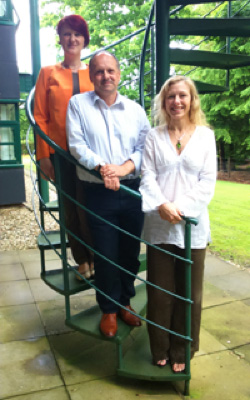
Meta-ethnography
Reporting Guidance



Qualitative research helps us understand how and why people experience health conditions, services and interventions in different ways. Qualitative synthesis involves bringing qualitative studies together in a systematic way. The purpose is to offer new insights or stronger evidence. Meta-ethnography is one popular method of qualitative synthesis. It involves lots of steps and choices for the research team but, as Emma France and colleagues have shown, these are not always reported clearly enough. To make meta-ethnographies more useful, our new eMERGe project aims to drive up standards of reporting them.
The majority of research funding goes to projects which investigate aspects of health and social care directly. The 24 month eMERGe study is unusual in that it is focused on improving care through improving the way research is done. As Principal Investigator Emma explains, “Meta-ethnography is a systematic and rigorous approach, but reporting quality varies and is often poor. We hope that developing tailored meta-ethnography reporting guidelines through expert consensus will mean the NHS can have greater trust in research that has potential value for improving health services and care.”
Emma and her team were joined recently by two part-time research fellows, Derek Jones and Isabelle Uny. They have hit the ground running to get the eMERGe ethics application submitted and a systematic scoping review of existing meta-ethnography guidance underway. Chosen for their complementary skills, Derek and Isabelle will take the lead on different aspects of eMERGe, and provide the kind of checks and balances that can make research processes and decisions more rigorous.
As a teacher of research methodology to nurses and allied health professionals, Derek recognises the need for guidelines that help people who are attempting qualitative synthesis to get beyond writing detailed descriptions of the included studies. He is clear that this means providing information on the conduct and reporting of meta-ethnography in a way that meets the needs of a range of users, from undergraduates engaged in critical appraisal, through to doctoral students and clinicians.
Isabelle is a qualitative health researcher specialising in international health. For her, the project is an opportunity to ensure rigour and quality in qualitative research across academic disciplines as “it’s not often you get to work on guidelines for a particular methodology in qualitative research”. She says it will be especially important for eMERGe to address current uncertainties around how studies are selected or sampled for a meta-ethnography, and how the process of ‘translation’ is undertaken.
If you are interested in being involved in learning about and advancing meta-ethnography, the project team has set up an email JISC list to support knowledge exchange and debate.
The eMERGe (Developing meta-ethnography reporting guidelines and standards for research) study is funded by a grant from the National Institute for Health Research’s Health Services and Delivery Research Programme.
Our photo shows the eMERGe team in July 2015

Monday, 16 May 2022 - Cochrane South Africa webinar on eMERGe reporting guidance 17 May 2022
Wednesday, 20 November 2019 - Meta-ethnography workshop comes to Belfast, N. Ireland
Thursday, 01 August 2019 - eMERGe reporting guidance now available in Spanish & Chinese!
View All